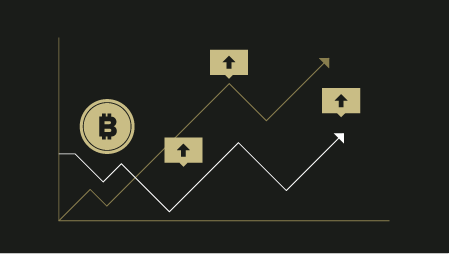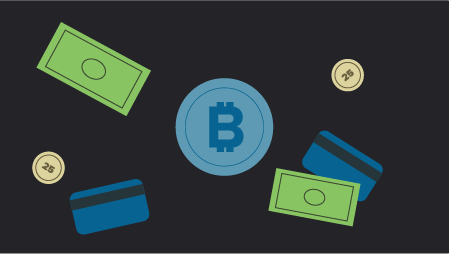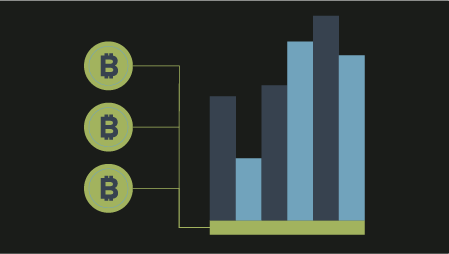As enterprises and society at large struggle to wield the massive amounts of data flowing off of devices, infrastructure, workflows, and users, two profound, but distinct technological developments are shaping the narrative. Artificial intelligence (AI) and blockchain are both poised to transform enterprise data strategies, but in very different ways.
AI is an umbrella term for numerous subsets of advancements in technology generally concerned with enabling machines to perceive, speak, act autonomously, and efficiently analyze and learn from large data sets.
Blockchain represents a series of technologies that enable distributed database architecture, wherein the record and verification of a transaction or event relies on multiple parties agreeing on the validity of that transaction, rather than relying on a single centralized authority.
On the surface, it is difficult to ascertain precisely where or how these technologies or the capabilities they engender would converge. Companies should begin by considering the areas of overlap in tension and opportunity, such as data sharing, security, and the need for trust.
Both Blockchain and Artificial Intelligence Require Data Sharing
>
A decentralized, distributed database requires data sharing because multiple nodes on the network must agree upon (and access) information from multiple parties in order to do so. AI applications benefit from and often rely on Big Data and data sharing as well – the more data, the better the algorithm, after all. While many enterprises still insist on proprietary models for competitive or compliance reasons, in an increasingly digitized society, data access becomes the essential catalyst for the value both technologies can deliver. In the blockchain space, numerous consortia are working toward facilitating cooperation and collaboration across historically estranged market constituencies. In the AI space, open-source communities and application programming interfaces (APIs) are facilitating a development culture based on shared access to frameworks and, in many cases, data.
Both Blockchain and Artificial Intelligence Require Security
>
Moving high value, volume, and velocity transactions to blockchain infrastructure requires extensive security development at every level of the stack. Similarly, when software agents and devices themselves are empowered with perception and decision-making capabilities, security is paramount to mitigate risks and prevent abuse. Both technologies introduce entirely new infrastructure to safeguard – decentralized ledgers in the case of blockchain, and automated analysis and decision-making in the case of AI. Interestingly, both AI and blockchain market activity is booming in common areas, such as fraud prevention, financial trading, security enhancement, supply chain automation, market prediction,and the Internet of Things (IoT), although there are few examples of companies applying both AI and blockchain capabilities to the same problem.
Both Blockchain and Artificial Intelligence Require Trust
>
Whether through architecture, analytics, or autonomous decision-making, changing the way businesses process billions or trillions of transactions and manage their data creates uncertainty. The general lack of trust (and understanding) of the current and future applications for AI and blockchain represent one of the greatest existential threats to broader adoption in both areas. The unprecedented adoption of a distributed ledger, away from a centralized one, introduces huge strategic and cultural barriers for which trust will be essential to overcome. But it is not just structural shifts that challenge trust, businesses must be accountable to their stakeholders and the law. This means both blockchain and AI systems must be auditable, adhere to compliance and regulation, uphold secure identity access protocol and protections, and respect ethics to the greatest extent possible.
Consider the potential opportunities when data sharing where security and trust are encoded into:
Infrastructure Operations: Original equipment manufacturers (OEMs) in numerous industries, alongside maintenance, insurance, and other service providers could improve visibility into, and therefore more robust prevention, even prediction of machine failure, system downtime, parts replacement, etc.
Customer Acquisition Processes: Multiple banks could improve models (and customer experience) for know your customer (KYC) or anti-money laundering (AML) approval and fraud prevention.
Supply Chain Operations: Multiple suppliers, distributors, retailers, etc. could improve transparency and accountability in supply chain and provenance tracking, identifying points of non-compliance, mismanagement of goods, and even root causes to product or delivery issues.
Ecosystem Awareness: Multiple industries (e.g., agriculture, government, logistics, utilities, universities) could leverage data globally to unearth otherwise obscured patterns, threats, opportunities related to ecology, weather, consumption, human rights, etc.
Blockchain Will Make Artificial Intelligence Accountable
>
Long term, the benefits of sharing data may far outweigh the risks, rendering centralized structures less competitive than decentralized ones. But we have a long way to go. Today, companies like IBM, Microsoft, Google, and startups like Numerai, Blockchain AI, Colony.io, and Yojee are dabbling in blockchain architectures with “smart agents” layered at different parts of the architecture or process. For example, some are working to apply intelligence to smart contracts that automatically execute code in the form of decentralized autonomous applications (Dapps) and decentralized autonomous corporations (DACs). The idea being that these smart(er) contracts will eventually engage in end-to-end automated operations, including auto-optimization, auto-installation, auto-regulation, auto-management, and auto-retirement.
These concepts underlie the idea of checks and balances in which blockchain helps make AI more accountable, while software and hardware intelligence enhance blockchain development, application, and process automation. “Smarter” is held to a standard of transparency.
Originally posted at Tractica



